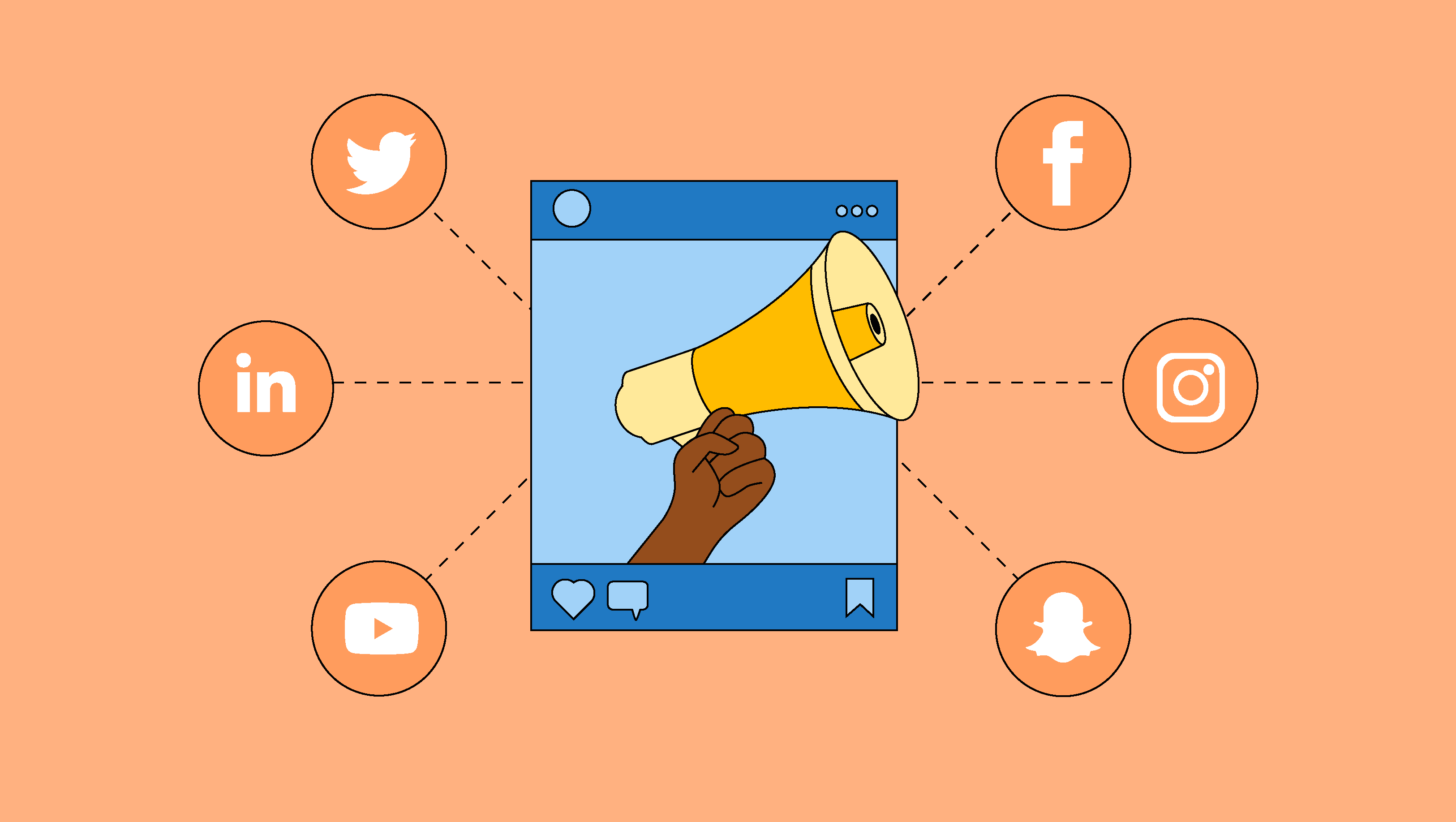Launching a small business is an exhilarating endeavor, and a well-rounded marketing package can significantly impact its trajectory. From strategic branding to community engagement, each element in this unique marketing package plays a vital role in establishing your business in the hearts and minds of your target audience.
Remember, adaptability and measurement are key – regularly analyze your marketing efforts and adjust your strategies based on the data you collect. With this comprehensive package in hand, you’ll be well-equipped to navigate the dynamic world of small business startup marketing and pave the way for lasting success.
Strategic Branding: Before embarking on any marketing efforts, it’s crucial to establish a strong brand identity. This includes creating a memorable logo, defining brand colors and fonts, and crafting a compelling brand story. A consistent and authentic brand identity helps your business stand out in a crowded marketplace.
Website Wonder: In the digital age, a website serves as the virtual storefront for your business. A user-friendly, responsive, and visually appealing website is imperative. It should effectively communicate your brand’s message, showcase your products or services, and offer seamless navigation. Additionally, integrating SEO (Search Engine Optimization) techniques will enhance your website’s visibility on search engines.
Content Strategy: Content is king, and a well-executed content strategy can drive organic traffic, engage your audience, and establish your business as an authority in your niche. This package should include a mix of blog posts, videos, infographics, and social media content that resonates with your target audience. Regularly updated content keeps your customers engaged and informed.
Social Media Mastery: Harness the power of social media platforms to connect with your audience on a personal level. A strong social media presence can boost brand awareness, drive traffic to your website, and foster customer loyalty. Each platform requires a tailored approach, so choose the ones that align with your business and audience.
Email Marketing Excellence: Don’t underestimate the potential of email marketing. Build a subscriber list and send out engaging newsletters, special offers, and updates. Personalization and segmentation are key to delivering relevant content that converts subscribers into customers.
Pay-Per-Click (PPC) Advertising: For a quick boost in visibility, PPC advertising can be highly effective. Platforms like Google Ads and social media ad campaigns allow you to target specific demographics, interests, and behaviors. Effective ad copy and strategic bidding can yield impressive results.
Influencer Collaborations: Partnering with influencers in your industry can expand your reach and credibility. Identify influencers whose values align with your brand and work together on campaigns or reviews. Their endorsement can introduce your business to their established audience.
Community Engagement: Foster a sense of community around your brand. This can involve hosting local events, workshops, or webinars. Engaging directly with your audience builds trust and fosters a loyal customer base.
Starting a small business is a journey that requires a blend of passion, dedication, and strategic planning. One of the key pillars to ensuring a successful launch is an effective marketing strategy. In the competitive landscape of today, a comprehensive marketing package can be the difference between thriving and merely surviving.
Read Also: How Much Does Tax Preparation Cost
Crafting a Startup Plan

A well-crafted startup marketing plan is the roadmap to establishing a strong brand presence, attracting customers, and achieving sustainable growth.
By understanding your audience, defining your value proposition, setting clear goals, leveraging appropriate channels, producing valuable content, and staying adaptable, your startup can navigate the exciting yet challenging journey to success in the business world.
Know Your Target Audience: Before embarking on any marketing journey, you need to have a clear understanding of your target audience. Who are they? What are their needs and pain points? What channels do they frequent? The more you know about your audience, the more effectively you can tailor your marketing strategies to resonate with them.
Define Your Value Proposition: What sets your startup apart from the competition? Your value proposition is the unique benefit or advantage that your product or service offers to customers. This should be the core message that drives all your marketing efforts. It should address the “why” behind your business and demonstrate how you can solve your customers’ problems.
Set Clear Goals and Objectives: To measure your startup’s marketing success, you need to establish clear goals and objectives. These could include metrics such as website traffic, lead generation, conversion rates, or social media engagement.
Setting specific, measurable, achievable, relevant, and time-bound (SMART) goals will help you track your progress and adjust your strategies accordingly.
Choose the Right Channels: There’s no shortage of marketing channels available today, from social media and content marketing to influencer partnerships and paid advertising. However, not all channels will be equally effective for your startup. Based on your target audience’s preferences and behaviors, select the channels that will provide the best reach and engagement.
Content is King: In the digital age, quality content is the cornerstone of effective marketing. Create content that educates, entertains, or solves problems for your audience. This could include blog posts, videos, infographics, or podcasts. Consistent and valuable content helps build trust and credibility with your audience, positioning your startup as an industry authority.
Leverage Social Media: Social media platforms are powerful tools for building brand awareness and engaging with your audience directly. Choose the platforms that align with your target audience and develop a content calendar that includes a mix of promotional content, user-generated content, and behind-the-scenes glimpses of your startup’s journey.
Embrace Data-Driven Insights: Data is your best friend when it comes to optimizing your marketing strategies. Monitor key performance indicators (KPIs) regularly and analyze the results to identify what’s working and what needs improvement. Use tools like Google Analytics and social media insights to gain valuable insights into user behavior.
Build Relationships: Networking and relationship-building are crucial for startups. Collaborate with influencers, industry experts, and complementary businesses to expand your reach. Attend relevant events, both online and offline, to connect with potential customers and partners.
Adapt and Evolve: The startup landscape is dynamic, and your marketing plan should be flexible enough to adapt to changing trends and consumer preferences. Regularly evaluate your strategies and adjust them as needed to ensure your startup remains relevant and competitive.
Measure and Refine: Continuously measure the effectiveness of your marketing efforts and refine your strategies accordingly. What worked yesterday might not work tomorrow, so be prepared to pivot and experiment with new approaches.
Tell me bossStarting a new business venture is exhilarating, but it also presents a significant challenge: getting your product or service noticed in a crowded market. This is where a well-structured startup marketing plan becomes your compass, guiding you toward achieving your business goals and establishing your brand’s presence.
Read Also: The Keys to Crafting an Effective Startup Marketing Team Structure
Startup Marketing Website

A startup marketing website is more than an online brochure; it’s a dynamic tool for brand storytelling, lead generation, and customer engagement. By aligning your brand identity with a minimalist design, compelling content, seamless UX, and a robust SEO strategy, your startup can carve out a unique and impactful digital presence.
Remember, your website serves as the virtual front door to your startup, so invest the time and effort to make it stand out in a competitive digital landscape.
Define Your Brand Identity: Before a single pixel is placed, it’s crucial to define your brand identity. Your website should reflect your startup’s personality, values, and mission. Consider your target audience and tailor your design, color palette, and messaging accordingly. A seamless integration of branding across the website fosters trust and recognition among visitors.
Simplicity in Design: Clutter is the enemy of user engagement. Embrace simplicity in design, focusing on a clean layout and intuitive navigation. Use generous white spaces, captivating imagery, and typography that’s easy on the eyes. A minimalist design not only enhances user experience but also emphasizes your startup’s professionalism.
Compelling Content: Content is king, even on a startup marketing website. Craft compelling and concise copy that articulates your value proposition. Address pain points your product or service solves and showcase real-world use cases. Leverage storytelling to emotionally connect with visitors, leaving a lasting impression.
User-Centric Experience: User experience (UX) is paramount. Ensure responsive design that adapts seamlessly to various devices, creating an optimal experience for both mobile and desktop users. Incorporate user feedback and conduct usability tests to iron out any kinks and optimize the overall journey.
Clear Call to Action (CTA): Every page of your website should have a clear and enticing call to action. Whether it’s signing up for a newsletter, requesting a demo, or making a purchase, the CTA should stand out and guide visitors toward the desired action. Employ persuasive language that motivates action without being pushy.
Social Proof and Testimonials: In the startup world, building trust is paramount. Showcase social proof, such as client logos, industry partnerships, or notable press mentions. Incorporate genuine testimonials and success stories to demonstrate the tangible impact your startup has had on customers.
Interactive Elements: Engagement is key to capturing and retaining visitors. Integrate interactive elements such as quizzes, calculators, or live chat features to encourage participation and create a personalized experience. These elements can also help gather valuable insights about your audience.
Blog and Educational Content: Position your startup as an industry thought leader by maintaining an insightful blog or resources section. Regularly publish articles, infographics, or videos that offer value to your target audience. This not only drives traffic to your website but also establishes credibility.
SEO Optimization: A stunning website is futile if it doesn’t rank well on search engines. Implement solid SEO practices, including keyword optimization, meta tags, and relevant content updates. A well-optimized website increases your chances of being discovered by potential customers.
In the bustling world of startups, a strong online presence can make or break a venture. One of the essential tools for establishing this digital identity is a well-designed and strategic marketing website. A startup marketing website isn’t just a digital business card; it’s a dynamic gateway that showcases your brand’s essence, captures audience attention, and fuels business growth.
Read Also: What You Need To Know About Ragdolls
